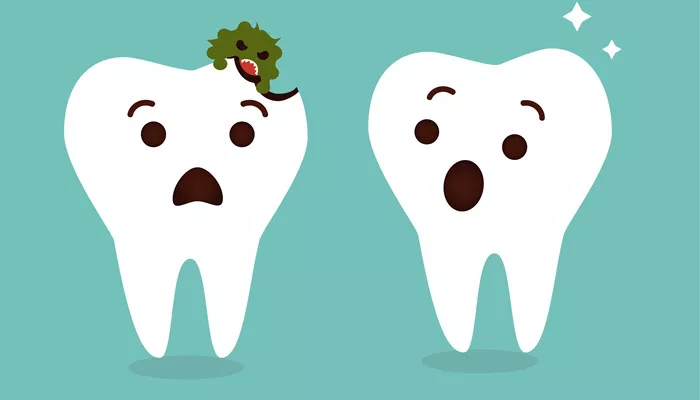Wisdom teeth removal is a common dental procedure that many people undergo in their late teens or early twenties. While the extraction itself is generally straightforward, one aspect that many patients find concerning afterward is the persistent bad smell coming from the mouth. This is often an unpleasant side effect, and understandably, it raises questions about the cause of the odor and how to deal with it. In this article, we’ll explore why your mouth might smell after wisdom teeth removal.
Healing Process And Tissue Changes
Blood Clot Formation
After wisdom teeth are removed, a blood clot forms in the socket. This blood clot is crucial for the healing process. It acts as a natural barrier, protecting the underlying bone and nerve endings. However, during the initial stages of clot formation, there can be a slight smell. The blood itself has a characteristic odor, and as it starts to clot, some of the components may release substances that contribute to the smell. For example, the breakdown of red blood cells can release iron – containing compounds, which may have a metallic smell.
If the blood clot is disrupted, for instance, by excessive rinsing or smoking in the early days after the extraction, it can lead to a more pronounced and unpleasant smell. This is because when the clot is dislodged, the underlying tissues are exposed, and bacteria can more easily colonize the area.
Tissue Inflammation and Necrosis
The area around the extracted wisdom tooth is inflamed as part of the normal healing process. Inflammation causes an increase in blood flow to the area, which brings in immune cells to fight off any potential infection. However, this also means that there is an increase in the metabolic activity of the cells in the area. Some of the cells may die (necrosis) during this process, especially if the extraction was a bit more complex or traumatic. The dead cells release substances that can cause an odor. For example, proteins from the dead cells can break down into amino acids, and some of these breakdown products can have a foul smell.
Additionally, the inflammatory response can cause the gums and surrounding tissues to be more permeable. This allows bacteria and their by – products to more easily pass through the tissues and contribute to the overall oral odor.
Bacterial Activity
Normal Oral Flora Changes
The oral cavity has a normal flora of bacteria. After wisdom teeth removal, the balance of this normal flora can be disrupted.
The surgical site provides a new environment for the bacteria. Some bacteria that are normally present in small numbers may start to multiply more rapidly. For example, anaerobic bacteria, which thrive in low – oxygen environments such as the deep socket after tooth extraction, can increase in number. These anaerobic bacteria are often associated with bad breath as they produce volatile sulfur compounds (VSCs). VSCs are known for their characteristic foul smell, similar to the smell of rotten eggs.
The change in the oral environment also means that bacteria can access different types of nutrients. For instance, the blood and tissue debris in the extraction site can serve as a food source for the bacteria. As they metabolize these substances, they release by – products that contribute to the oral odor.
Infection Risk
There is a risk of infection after wisdom teeth removal. If an infection occurs, it can significantly worsen the smell in the mouth. Infections are often caused by bacteria entering the surgical site. The bacteria can cause pus formation, which has a very unpleasant smell. The presence of pus indicates that the body’s immune system is actively fighting the infection, but the by – products of this battle, including dead bacteria, white blood cells, and tissue debris, all contribute to the foul odor. Infections can also spread to adjacent tissues, such as the gums and jawbone, further exacerbating the problem.
Dietary And Oral Hygiene Factors
Dietary Considerations
After wisdom teeth removal, patients are often advised to follow a soft – diet. This can sometimes lead to an increase in the consumption of foods that are more likely to cause bad breath. For example, consuming a lot of dairy products like yogurt or soft – cooked eggs can leave a residue in the mouth that can be broken down by bacteria, producing an odor. Also, if patients do not drink enough water, the lack of saliva can contribute to a dry mouth. Saliva helps to wash away food particles and bacteria, and a dry mouth can lead to a buildup of bacteria and a worsening of the oral odor.
Oral Hygiene Challenges
Maintaining good oral hygiene after wisdom teeth removal can be difficult. The surgical site is tender, and patients may be hesitant to brush or rinse their mouths properly. However, if food particles are not removed from the mouth, they can decompose and cause a bad smell. Additionally, not being able to clean the area around the extraction site effectively can allow bacteria to thrive. For example, if small pieces of food get stuck in the socket, they can provide a breeding ground for bacteria, leading to an increase in odor.
Conclusion
In conclusion, the mouth may smell after removing wisdom teeth due to a combination of factors related to the healing process, changes in bacterial activity, dietary choices, and challenges in maintaining oral hygiene. It is important for patients to follow their dentist’s instructions carefully, both in terms of post – extraction care and diet, to minimize the unpleasant smell and promote proper healing.
Related topics:

